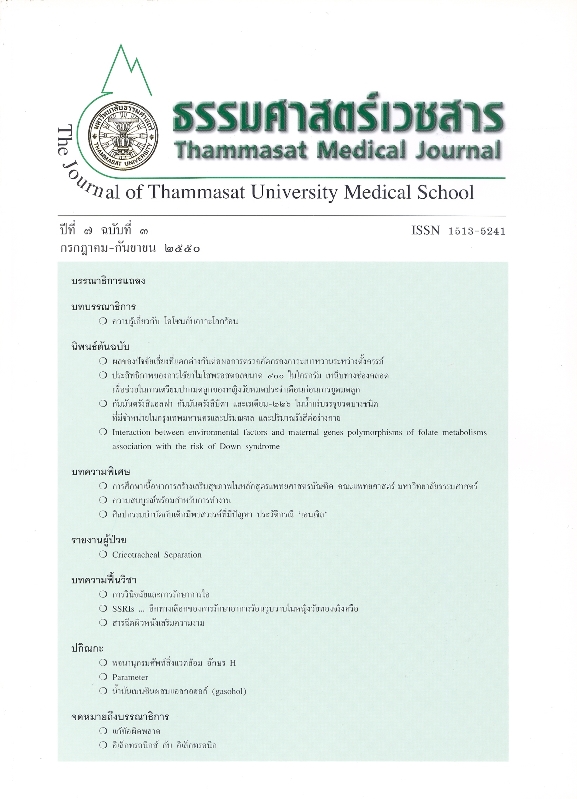Interaction between environmental factors and maternal genes polymorphisms of folate metabolisms association with the risk of Down syndrome
Keywords:
Down syndrome, folate metabolisms, maternal genes polymorphismsAbstract
The purpose of this study was to study the interaction between environmental factors and maternal genes polymorphisms of folate metabolism in association with the risk of Down syndrome. The samples of the studied were 278 person, 101 cases and 177 controls. The 101 mothers of the case group have children with Down syndrome. The 65 children with Down syndrome are from the lab of Rachanukul Institute, and the 36 children with Down syndrome are from the King Chulalongkorn Memorial hospital. All children had karyotypically confirmed full trisomy 21. The 177 control mothers are from the King Chulalongkorn Memorial hospital and they do not have children with Down syndrome. Data were consists of two parts. The first parts are MTHFR, MTRR and MTR genotype of samples. This part is abstract from the record in the study of “Association between Polymorphisms in Maternal Genes of Folate Metabolisms and Down Syndrome” (Thivaratana Sinthuwiwat, 2004). The Second part, environmental factors of mothers, data are from interviews of a sample group of individuals in the first part. Statistical analysis was described in percentage, hypothesis testing by Chi-square test and Fisher’s exact test while risk estimation is explain by Odd ratio.
The result of this study showed that most general characteristic of case and control were similar (p > 0.05). The results of study on interaction between environmental exposure before pregnancies and genes polymorphisms were not different with statistical significance in mothers having children with Down syndrome and control mothers. Except the interaction between drinking alcohol and MTR 2756 AG polymorphisms in mothers who having children with Down syndrome were statistically significant.



